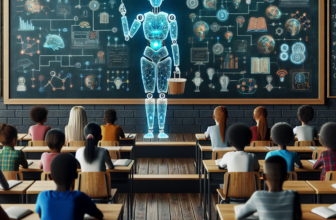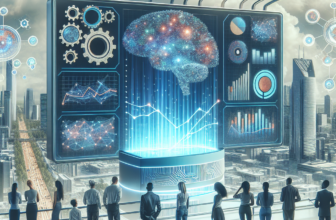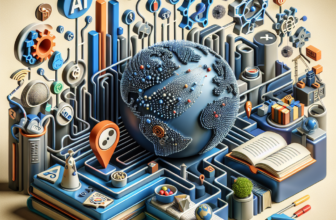Beyond Text-to-Speech: AI Voice Generators and Their Continuous Advancements

AI Voice Generator: Beyond Text-to-Speech and Continuous Advancements
The field of Artificial Intelligence (AI) continues to advance at an exponential rate, and one such advancement that has caught the attention of many is AI voice generators. These innovative tools go beyond traditional text-to-speech systems, enabling users to generate realistic human-like voices that can be utilized for various purposes. This article explores the continuous advancements in AI voice generators and provides answers to frequently asked questions.
AI Voice Generator: A Brief Overview
An AI voice generator is a software application that utilizes deep learning algorithms to generate synthesized human-like speech from written text. Initially, text-to-speech systems were limited in their ability to produce natural-sounding voices. However, recent advancements in AI, specifically in the areas of machine learning and neural networks, have revolutionized this technology, resulting in highly advanced voice generation capabilities.
Beyond Text-to-Speech: The Advancements
The advancements in AI voice generators have pushed the boundaries of what was previously possible. Here are some key advancements in this field:
1. Neural Networks and Deep Learning
AI voice generators leverage neural networks, a subfield of AI, that are inspired by the human brain’s structure and functioning. Deep learning, a subset of neural networks, involves training large-scale models using vast amounts of data. This approach has significantly improved the quality and naturalness of synthesized voices.
2. Style and Emotion Adaptation
Modern AI voice generators excel at not only reproducing the words written but also embodying various styles and emotions. Whether it’s an authoritative voice for a documentary, a cheerful voice for an advertisement, or a compassionate voice for an audiobook, AI voice generators can adapt to the desired style and emotion, creating a more engaging and personalized experience.
3. Multilingual and Accurate Pronunciation
With the ability to learn from vast datasets, AI voice generators have achieved impressive accuracy in pronunciation, even for complex and multi-syllable words across different languages. This advancement opens up opportunities for seamless voice localization and global accessibility.
4. Customization and Personalization
AI voice generators now allow users to customize various aspects of the generated voice, including pitch, speed, intonation, and more. This customization enables users to tailor the voice to their specific requirements, making it suitable for specific projects or targeted audiences.
5. Real-Time Voice Generation
Another notable advancement is the ability of AI voice generators to generate speech in real-time. This enables applications such as voice assistants, interactive chatbots, and gaming characters to respond and engage in dynamic conversations, giving them a more lifelike presence.
FAQs about AI Voice Generators
Q1: How accurate are AI voice generators in imitating human voices?
AI voice generators have significantly improved in their ability to imitate human voices. While there are still occasional hiccups, the advancements in neural networks and deep learning have resulted in highly realistic and natural-sounding voices.
Q2: Are AI voice generators capable of adjusting accents and dialects?
Yes, AI voice generators can adapt and adjust to various accents and dialects. By training models on diverse linguistic datasets, the generators can match the desired accent and dialect, providing more inclusive and contextually appropriate voice output.
Q3: Can AI voice generators be used for commercial purposes?
Yes, AI voice generators can be used for commercial purposes. Many industries, such as advertising, film production, audiobook narration, and e-learning, are utilizing these generators to enhance their products and services with professional-grade voiceovers.
Q4: Can AI voice generators be integrated into existing applications?
Yes, AI voice generators are designed to be easily integrated into existing applications. They provide APIs (Application Programming Interfaces) that developers can utilize to leverage the voice generation capabilities within their own software or platforms.
Q5: Are there any ethical concerns associated with AI voice generators?
As with any AI technology, ethical concerns exist within the realm of AI voice generators. Issues such as voice impersonation, misuse of synthesized voices, and potential manipulation of audio content raise ethical considerations that need to be addressed through legal and regulatory frameworks.
Conclusion
AI voice generators have come a long way, exceeding the limitations of traditional text-to-speech systems. With advancements in neural networks, deep learning, style adaptation, and real-time voice generation, they now offer highly realistic and customizable synthesized voices. However, ethical considerations surrounding their use must be carefully addressed. As AI continues to advance, it is certain that voice generation technology will continue to evolve, providing even more astonishing capabilities in the future.







